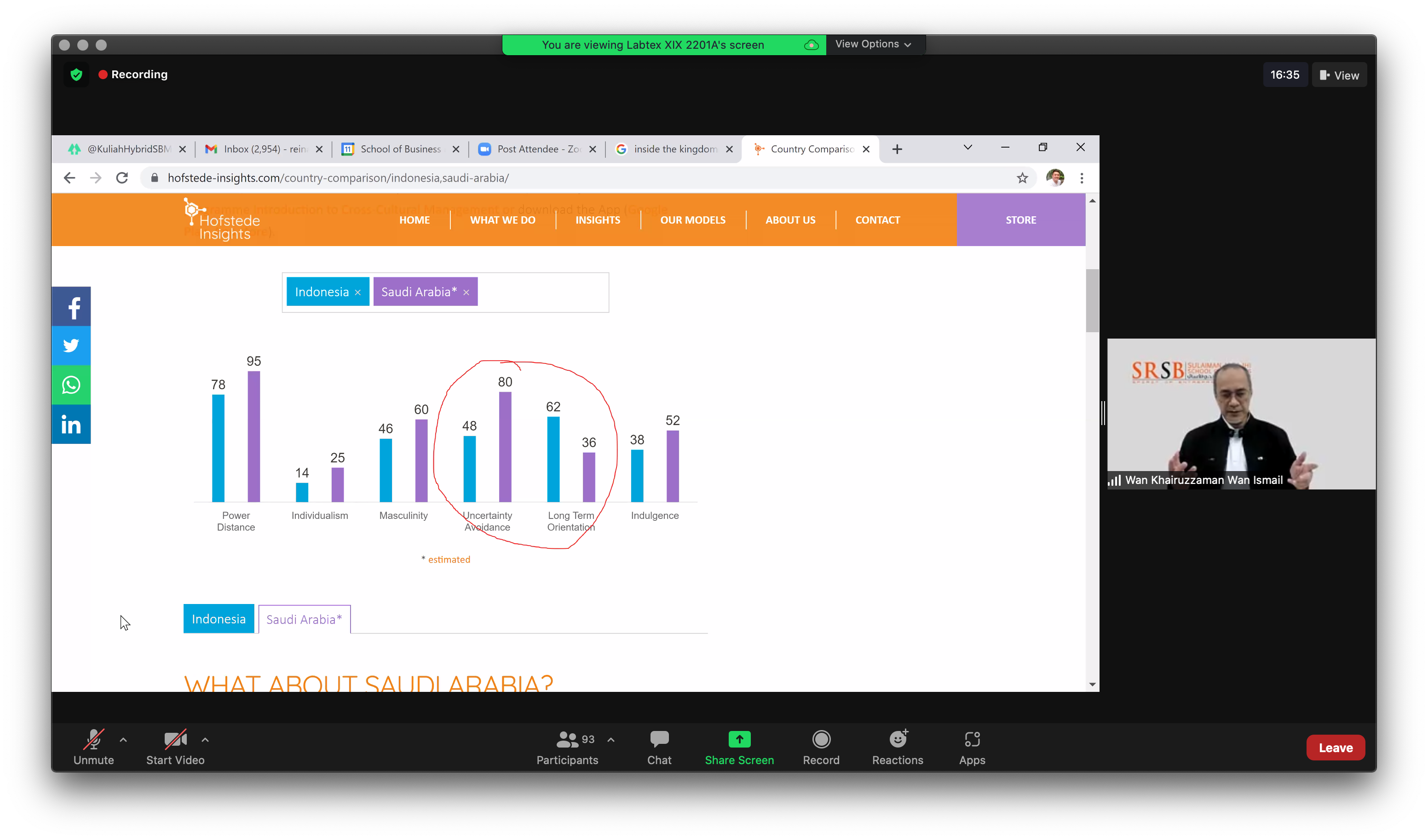When entering a foreign market, businessmen must understand the culture and customer behavior to avoid embarrassing mistakes. To discuss this topic in the context of Saudi Arabia’s residents, SBM ITB welcomed Wan Khairuzzaman Wan Ismail, a Professor from Sulaiman Al Rajhi University School of Business, in a Guest Lecture.
According to Wan, fewer pilgrims came to Saudi Arabia because of the Covid-19 restriction, reducing incoming cash flows. As lots of the expatriates working in Saudi Arabia returned home, the pandemic also caused a mindset shift and change in the behavior of the Saudi Arabian people.

Using Hofstede’s Dimension of Culture, Wan explained Saudi Arabians’ characteristics and compared them to Indonesian. Overall, they are similar to Indonesia. Saudi Arabians embrace hierarchy and have a strong sense of position and status. Saudi Arabia also has a collectivist society, and they highly depend on what people in their circle say. Thus, if we want to sell something, Wan suggested that we ensure to sell it to the tribes.
Saudi Arabians also tend to be short-term, impulsive, and don’t go for long planning periods. They tend to wait until the last minute. “In terms of calling for an interview, if it’s next week, Indonesian would inform it as soon as possible. However, the Saudis would think that if we tell them too soon, they might forget, thus it would be better to inform them on the day or the day before,” said Wan.
Wan also stated that previously Saudi Arabians disliked shopping online. They are sociable people. When they want to buy something, they would ask many things and be there physically. Their trust in online shops was low. However, pandemic becomes a blessing in disguise and changes the way online shopping is perceived.
“The mentality of Saudis is that they willing to pay more but make sure they get a high-quality product. Previously, there was more return than purchase in online shopping due to low quality. These days, however, more people shop online and sellers have increased the quality, thus increasing people’s trust,” said Wan.






